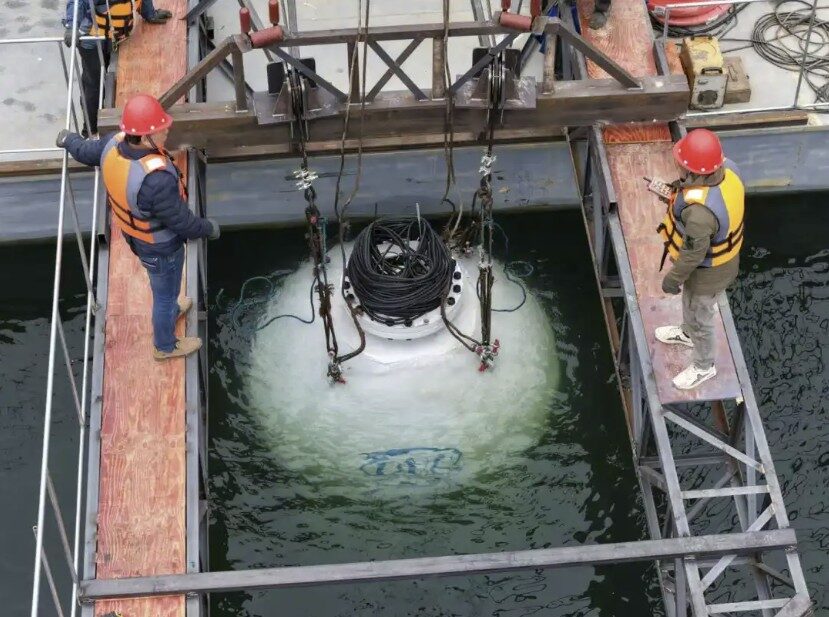It’s been a record shattering year for heat pump installations in the United Kingdom, and the number of certified installers has surged. A total of 42,064 MCS-certified heat pump installations were carried out between January and September 2024, according to data from the certification body, surpassing the record-breaking 40,426 installed for the whole of 2023.
MCS is a voluntary certification scheme, however using an MCS-certified installer is the only way households can guarantee access to the Smart Export Guarantee export tariff, a UK government's successor to the feed-in tariff. The scheme’s installation data is also used by the UK government as part of its total solar capacity deployment records.
More than 5,000 UK contractors now have MCS certification, with 77% certified for solar PV, 58% for heat pumps and 34% for battery storage. Alex Hughes, head of scheme at MCS, told pv magazine that the UK certification body now has, “the highest heat pump installer base that we’ve ever had.”
New data
Annual heat pump installations by MCS-certified installers have tripled since 2020 and Hughes told pv magazine new records have been set for the technology each year since she joined the organization in 2019. It’s progress, however in March 2024 the UK National Audit Office estimated the pace of heat pump installation growth is still well short of hitting the target of 600,000 per year by 2028, set by the government in 2021.
Retrofits appear to account for the vast majority of UK heat pump installations, despite the additional cost compared to installing on new build properties. MCS is in the early stages of collecting data on building type for heat pump installations, but Hughes said figures from January to September 2024 reveal new build properties account for 12% of air-source heat pump installations, with 88% retrofit, while ground- and water-sourced heat pump installations were 65% new build and 35% retrofit. This results in a total heat pump split of 14% new build and 86% retrofit.
Flat solar
Small-scale solar hasn’t enjoyed the installation growth seen by heat pumps in 2024, however MCS has recorded 135,625 certified solar installations of in the United Kingdom from January to September, down from 156,141 for the same period in 2023.
On a month-by-month basis MCS certified installations, which cover systems up to 50 kW, have been largely flat in 2024. Monthly installations have ranged from a low of 13,298 in January to 16,052 in May, the busiest month for installations in the year to date.
Hughes acknowledged that number of solar installations below 50 kW has declined in 2024 and pointed to the changing market conditions that could be behind the numbers.
“Last year was a lot of catch up from Covid, obviously demand spiked because of the energy crisis, over time that’s calmed down a bit,” said Hughes. “What we’re seeing now is deployment [that is] a lot more steady and consistent.”
Storage surge
Where small-scale solar deployment is steady, UK battery storage installations have grown significantly – at least based on MCS data. Certification isn’t required to install battery storage alongside PV, and less than half of MCS certified contractors have completed the accreditation process for batteries, but the scale of growth may suggest a wider trend. The MCS Battery Storage Installation standard covers battery storage installations up to a maximum power output of 50 kW.
September 2024 was the best month on record for MCS certified battery storage installations, with 1,193 recorded installations. The certification body’s battery installation data only goes back to 2022, but there has been a marked rise since. In 2023, the scheme recorded just 4,965 accredited battery installations for the year, compared to 13,263 year-to-date at the end of September 2024.
“It’s the fastest growing technology on the scheme,” said Hughes. “We know there are probably a lot of certified solar PV installer out there that don’t have the battery storage certification but are probably installing PV and battery together, we’re really keen that they get the certification for both.”
Hughes added that installers being solar but not storage certified had potential to create confusion for some consumers.
Next steps
Consumer protection is high on the agenda at MCS, according to Hughes. The certification body's battery working group is considering a battery product standard, in a similar vein to the product certification it offers for solar modules and related equipment in the United Kingdom. MCS currently works with international certification bodies to build a list of products tested for compliance with UK regulations, as well as the scheme’s own standards designed with input from installers, consumer groups, trade associations and technical experts.
Hughes said work is also underway to strengthen the MCS scheme in a bid to improve compliance with standards and to bolster consumer protections, with more details expected before the end of 2024.
“There’s a whole load of work that we’ve got planned in terms of scheme reforms, in terms of strengthening the certification framework, introducing risk-based surveillance, this is all coming into next year.
“A lot of change is coming to strengthen the certification framework and the consumer protection,” she said.
This content is protected by copyright and may not be reused. If you want to cooperate with us and would like to reuse some of our content, please contact: editors@pv-magazine.com.



Perhaps the number of MCS solar certified installations has declined because installers and customer realise what a con MCS is. MCS are in it just to make money, and are about as much use as a chocolate tea pot when things go wrong. There are probably a lot more non MCS installations than there used to be.